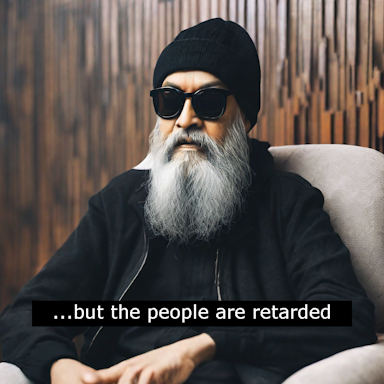'Courage is contagious; when a brave man takes a stand, the spines of others are often stiffened.' — Julian Assange
On January 21st, at 8:35 PM UTC, a momentous event unfolded in the short yet impactful history of isonomics. The newly launched $Nomos token went live on SushiSwap, marking a significant milestone for the isonomist community. This initiation of a freely tradable token serves as a catalyst, providing a platform for isonomists to unite in their shared mission. At its essence, this mission entails establishing a transparent and decentralized network that not only ensures fair and indisputable elections but also actively endeavors to reduce the unwarranted sway of politicians, thereby reinstating power to the citizens. In this comprehensive blog post, we will delve into the multifaceted aspects of how isonomics not only aims to reshape the political landscape but also strives to champion the cause of political victims who are continually generated by existing systems. Additionally, we will shine a light on notable individuals who have suffered within the current political framework.
$Nomos initiated trading on January 21, 2024, at 0.000000012 or $12 per billion and is currently trading at $19 per billion with a market cap of $14,597.
The Goal of Isonomics
Isonomics, as a revolutionary force, seeks to redefine the dynamics of local elections by taking control through a 100% transparent and decentralized blockchain network. This ambitious endeavor is geared towards ensuring that elections are not only conducted fairly but are also indisputable, thereby eliminating the corrupting influence of politicians. The overarching vision is to empower citizens, providing them with the tools to regain control over a political system that has often sidelined their interests. The ultimate litmus test of success for isonomics lies in the moment citizens, armed with regained power, can actively participate in acquitting political victims. It is then that isonomics can claim to have achieved its lofty goal.
The Role of the Nomos Network
The introduction of the Nomos network represents a pivotal step in the isonomic journey. This network, intricately designed for building a robust voting and elections infrastructure, stands as a testament to isonomics' commitment to resilience against political interference. The Nomos network is built on the collaborative proof-of-work mechanism of the Minima blockchain, a creation of the visionary Spartacus Rex. This mechanism not only eliminates the need for specialized and competitive miners but also fortifies the network against external manipulation. By harnessing the power of blockchain technology, isonomics endeavors to create a system that is transparent, secure, and resolute in its resistance to censorship.
Interested in isonomics and Nomos? Participate in our Discord channel to engage in lively discussions, share your thoughts, and help shape the future of decentralized governance and civic engagement. Your voice is important—become a catalyst for change today! Additionally, we are on the lookout for a UI/UX designer.
Key Examples of Political Victims
Assange and Snowden
Among the most recognizable names in the realm of political victims are Julian Assange and Edward Snowden. These individuals, driven by a profound desire to expose government secrets and corruption, faced severe consequences for their bravery. Julian Assange, the founder of WikiLeaks, dared to bring to light classified information that exposed human rights abuses, government misconduct, and corporate malfeasance. His relentless pursuit of truth led to him seeking asylum in the Ecuadorian Embassy in London for several years, fearing extradition to the United States.
Edward Snowden, a former NSA contractor, became a symbol of whistleblowing when he leaked classified documents revealing global surveillance programs. His disclosures sparked a global debate on privacy, government overreach, and the balance between national security and individual freedoms. Forced to seek refuge in Russia to evade U.S. charges, Snowden's actions exemplify the challenges faced by those who expose the dark underbelly of powerful institutions.
Their stories serve as poignant reminders of the dire need for systemic change within our current political frameworks. The struggles faced by Assange and Snowden underscore the importance of protecting whistleblowers and fostering an environment where truth can prevail over secrecy and abuse of power. Their narratives, marked by sacrifice and resilience, emphasize the urgency of reevaluating the structures that allow such victimization to occur and the imperative of safeguarding those who dare to speak truth to power.
Dr. Reiner Fuellmich
While Assange and Snowden stand as globally acknowledged figures, it's equally imperative to shed light on lesser-known yet profoundly impactful examples. Dr. Reiner Fuellmich, a dedicated German lawyer, stands on the frontline, tirelessly advocating for justice and truth amidst the complexities of the COVID-19 pandemic. His vocal stance against alleged data manipulation and infringements on civil liberties has garnered significant attention, placing him in a situation that demands international scrutiny.
Recently, Fuellmich faced incarceration on administrative allegations. The situation unfolded when Fuellmich and his wife lost their German passports during a vacation in Mexico, prompting them to report the incident to the consulate in Tijuana. To their surprise, upon visiting the consulate for new passports, Fuellmich was confronted by six German officials who served him with a 30-page document outlining undisclosed charges. Notably, there exists no extradition treaty between Mexico and Germany. Nevertheless, Fuellmich was forcefully deported and arrested upon reaching Frankfurt. The circumstances surrounding his arrest have sparked concerns, with speculation ranging from a potentially illegal detainment to an orchestrated kidnapping by elements referred to as the 'deep state.'
The term 'deep state' denotes an alleged covert network of individuals within various branches of government, intelligence agencies, and influential corporations who aim to manipulate and control political power for their own gain.
As of now, Fuellmich resides in pretrial detention in Frankfurt, and updates on his situation are accessible through his Telegram channel.
Peter Schiff
Another compelling example is Peter Schiff, an American economist, financial commentator, and host of the popular podcast "The Peter Schiff Show." Schiff's repeated warnings about the dangers of central banks and unsustainable economic policies have fallen on deaf ears within mainstream media and political circles. Despite his accurate predictions, Schiff has been marginalized and dismissed, raising questions about the repercussions of challenging the prevailing narrative. His outspoken views and his relentless pursuit of truth have put him directly in the crosshairs of those in power.
A pivotal instance showcasing Schiff's ongoing battle can be found in his legal victories against defamation, preceding the false media narrative that ultimately led to the closure of his bank. This narrative underscores the complexities inherent in combating systemic issues. The deliberate misrepresentation of Schiff's interview by 60 Minutes, coupled with subsequent investigations and the bank's closure, highlights the formidable challenges faced by those challenging the status quo. Despite triumphing in all seven defamation cases, media outlets conveniently omitted any mention of his legal successes. This silence raises suspicions about the influence and control exerted by the deep state over media narratives.
Furthermore, Schiff's bank underwent unjust scrutiny and eventual closure, allegedly orchestrated by clandestine forces. Despite the absence of significant findings or violations, authorities exhibited relentless determination to shut down his bank, prompting questions about the motives behind such actions and suggesting a concerted effort to suppress Schiff's influence and disrupt his exposure of corruption.
It is evident that Peter Schiff's outspokenness and pursuit of truth have made him a target of the deep state. The media's silence on his legal victories and the unjust actions against his bank reinforce the existence of powerful forces working behind the scenes. Schiff's resilience in the face of these challenges underscores the vital role independent voices play in holding the deep state accountable and striving for a more transparent and just society.
The Nomos Network: A Beacon of Hope
In light of these challenges, the Nomos network emerges as a beacon of hope. It not only symbolizes a technological advancement but, more importantly, empowers citizens to actively participate in the political process. By eliminating power concentration in the hands of a few, isonomics, through the Nomos network, presents a tangible pathway for transformative change. It envisions a future where justice prevails, heroes are celebrated, and the power dynamic between citizens and the political apparatus is redefined.
Decentralized Autonomous Government in Isonomics
One key principle of isonomics is the establishment of a decentralized autonomous government, but with a distinct twist. Unlike traditional governance, isonomics intentionally moves away from concentrated authority, aiming to shift power from centralized entities to the broader isonomist community. Enabled by the Nomos network, this model ensures collective decision-making for inclusivity and fairness, acting as a counterbalance to structures that have led to the victimization of political figures and whistleblowers.
Conclusion
As we reflect on the momentous occasion of the $Nomos token going live and available for trading, the immense potential of isonomics becomes abundantly clear. It stands not only as a technological marvel but as a catalyst for positive change in the realms of politics and justice. The transparent and decentralized network that isonomics aspires to create holds the promise of reshaping the political landscape fundamentally. The Nomos network, with its robust infrastructure and resistance to manipulation, becomes a powerful tool for citizens to actively participate in shaping their political destiny.
The fight for justice and the advocacy for heroes like Assange, Snowden, Fuellmich, and Schiff find a platform in the Nomos network. It represents a collective endeavor to break free from the constraints of a system that has often overlooked the rights and voices of the citizens it is meant to serve. The Nomos network is not just a technological innovation; it is a beacon of hope for a future where power truly resides with the people.
Together, as a united isonomist community, we hold the potential to make a profound difference. The launch of the $Nomos token is not just a transaction; it's a symbolic step towards reclaiming power, standing up for the marginalized, and creating a future where justice is not a mere ideal but a lived reality. If we remain passive, change will elude us. But by actively participating in the isonomist movement, we can shape a future where the power dynamics between citizens and the political establishment are transformed. Let us seize this moment and strive for a fairer, more transparent, and just political landscape.

